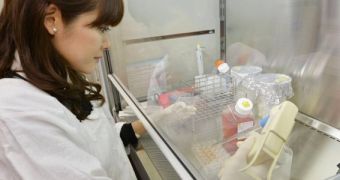A member of the Japanese research team that this January published a new study on how to easily obtain a new type of stem cells from adult, fully-differentiated cells is now calling for the paper to be retracted, amid allegations that the data is incorrect. Numerous research groups around the world have already stated that the results Japanese scientist Haruko Obokata obtained could not be replicated.
The team Obokata led also included scientists in the United States. The simple and low-tech approach the group proposed for obtaining stem cells in the January issue of the top journal Nature appears to contain diagrams and other images taken from another journal and to feature data that could not be verified in independent experiments.
Yamanashi University professor Teruhiko Wakayama, a coauthor of the study, told Nippon Television on Monday that he found the conclusions of the research increasingly difficult to believe after the international community drew attention to so many errors in the underlying data. The RIKEN Institute, which hosts Obokata and financed the study, says it was considering pulling the research on Tuesday.
“We are considering whether to retract the report based on its credibility and research ethics, even though our investigation is still underway,” RIKEN officials said in a press release on March 11, 2014.
Scientists associated with Nature and from the Harvard Medical School and Brigham and Women's Hospital in Boston, are also investigating the paper. Some experts say that more attention should be paid to the relevance these mistakes have on the results, not on peer pressure, PhysOrg reports.

 14 DAY TRIAL //
14 DAY TRIAL //